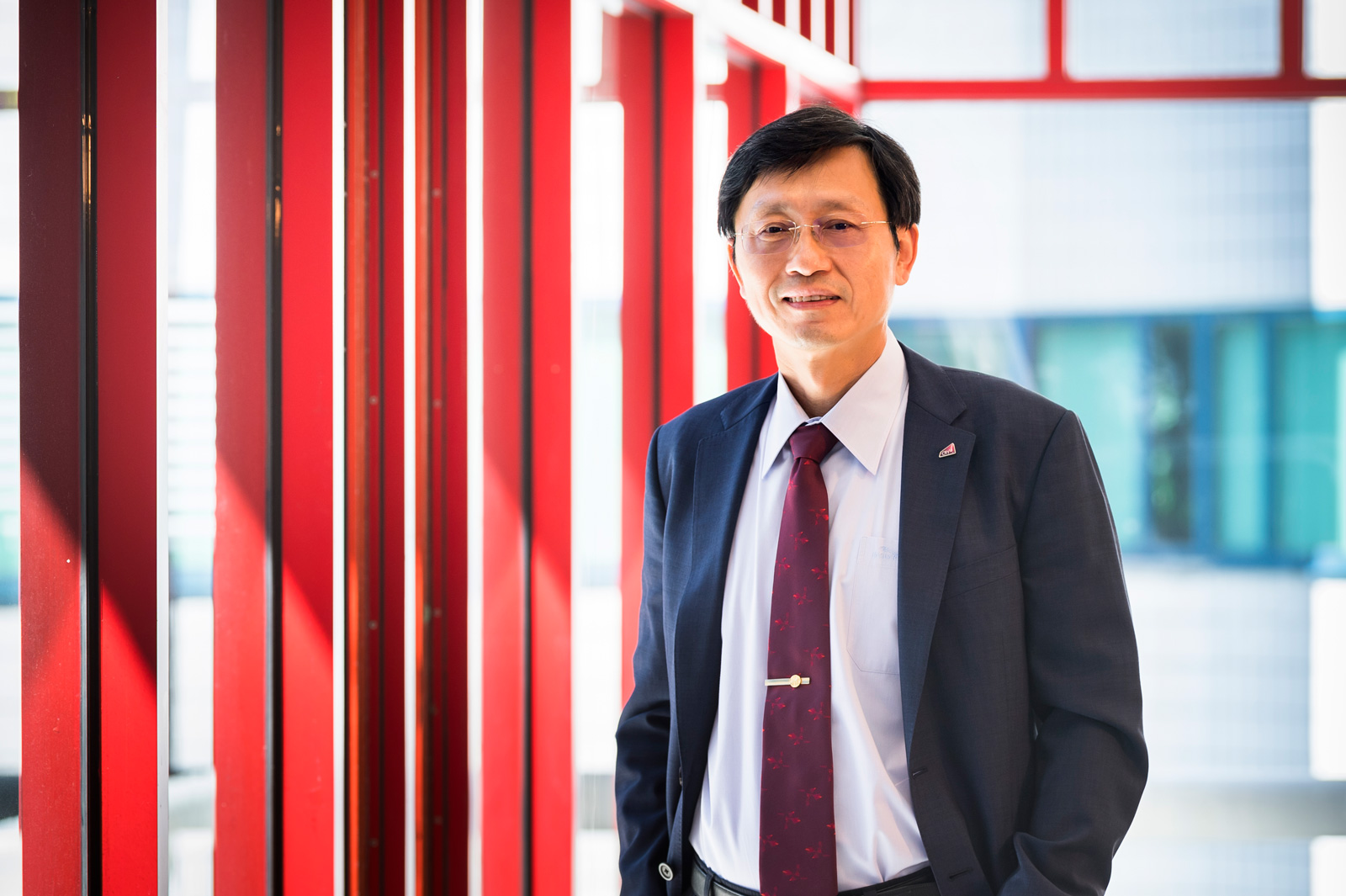Pioneering embedded system and software designs

Professor Kuo Tei-wei, Lee Shau Kee Chair Professor of Information Engineering and Dean of the College of Engineering, has been awarded the Humboldt Research Award from the Alexander von Humboldt Foundation in recognition of his achievements as a pioneer in system and software designs of non-volatile memory.
The award is one of the highest recognitions in Germany for researchers living and working outside Germany. The Foundation maintains a network of over 30,000 Humboldt Foundation sponsorship recipients, including 56 Nobel Laureates.
“It is a great honour to receive the Humboldt Research Award,” said Professor Kuo, whose system and software designs have fundamental impacts over a variety of devices equipped with non-volatile memory, such as solid-state drives and smart phones.
“The award recognises that the work we are doing at CityU can genuinely change the world,” he added. Winning the award enables Professor Kuo to conduct research at universities and institutes in Germany with collaborators in his field after travel restrictions due to the pandemic are lifted.
One of Professor Kuo’s most significant achievements in his career so far has been to flash-memory storage devices, now known as solid-state drives. It is now further extended to transform memory into computing power within devices, which essentially is an attempt to imitate the way the human brain simultaneously computes multiple actions within a fraction of a second.
“We are working on innovative memory and system designs that can change the way data moves between computing units and main memory/storage. For instance, currently, we know that it takes time to move data from the cloud to devices. But by transforming storage space in memory into computational power, we can create what we call neuromorphic computing, which is faster and uses less energy than today’s computer devices,” he said.
His work feeds into the development of AI chips that can revolutionise computing architecture and systems, allowing for the execution of billions of algorithm-based actions at speeds not possible using today’s computer systems.
Ultra-light-weight devices such as wearables that connect humans to the internet of things form another dimension to Professor Kuo’s research.
“These small, embedded devices require minimal storage and harvest energy from kinetic and environmental sources, working only when needed rather than running continually,” he said.
These devices, to be used for all kinds of everyday actions in our daily lives and attached to clothing or even embedded in the human body, will operate intermittently, meaning they are only powered up when needed, thus making them more efficient.
The fundamental impact of Professor Kuo’s work, particularly on the endurance and performance enhancement of storage systems, and with popular products such as solid-state drives in laptops and data centres, as well as his energy-efficient and real-time scheduling theories and implementation works in real-time and embedded systems, has led to a number of awards.
He was recognised by the IEEE Technical Committee on Real-Time Systems with their annual highest recognition “Outstanding Technical Achievement and Leadership Award” in 2017 and with a fellow of ACM, IEEE, and US National Academy of Inventors. He is the founding Editor-in-Chief of ACM Transactions on Cyber-Physical Systems.
“My role in cyber-physical systems in recent years has been to drive research in advanced computer system designs that interact with the physical world, such as those in smart transportation and advanced manufacturing,” he said.
His work has direct links with the future automation of aspects of travel, including cars and planes, and the manufacturing sector.
“I am very grateful for all the help that I have received from my team members and students over the years, and I am very pleased that the Humboldt Foundations knows about the pioneering work that we are undertaking at CityU,” he said.
